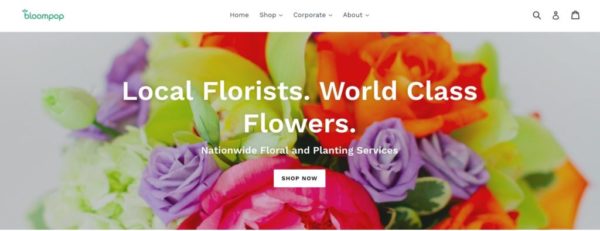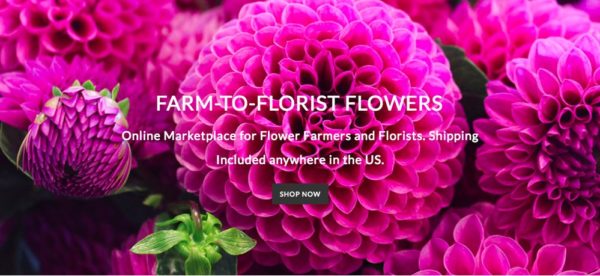Sponsored by Monday Properties and written by ARLnow.com, Startup Monday is a weekly column that profiles Arlington-based startups and their founders, plus other local technology happenings. The Ground Floor, Monday’s office space for young companies in Rosslyn, is now open. The Metro-accessible space features a 5,000-square-foot common area that includes a kitchen, lounge area, collaborative meeting spaces, and a stage for formal presentations.
(Updated at noon) When Shavanna Miller’s Bloompop was featured in an April 2014 edition of “Startup Monday,” it had been just seven months since the company’s official launch. At the time, the Crystal City company sought to connect high-quality florists across the country with customers in their communities who might otherwise order arrangements from larger businesses — but plenty has changed since then.
“When we launched, we were… competing in the same space as the larger flower companies people would know about, like 1-800-Flowers,” Miller said. They were also competing with another D.C. area startup: the expanding direct-to-consumer floral delivery service UrbanStems.
After curating a base of florists to serve the D.C. area, Bloompop expanded its reach to offer gift order services across the country. Although Bloompop still takes gift orders, the company now serves primarily corporate customers, often providing flowers “on a weekly subscription basis to their buildings,” Miller said.
Companies on Bloompop’s client list include Tiffany & Co., fashion designer Carolina Herrera and real estate development and construction company Bozzuto. Bloompop’s reliable, creative partners give it an edge in building relationships with high-profile clients, Miller said.
“The big differentiator is that we have really beautiful designs, really high-quality design partners and florists that we work with… who are very reliable,” Miller said.
Bloompop has chosen the florists it works with carefully since its founding, when Miller would comb through online review sites to find florists with exclusively four- and five-star ratings.
“On the consumer side or on the corporate side, it’s not just any florist,” Miller said, adding that Bloompop considers questions like “who’s the best local florist?” and “who does the most unique designs?”
But Miller figured she could change things up even more. She branched out in 2016 to found Freshcut, which connects farmers in locations such as Colombia, Ecuador and the Netherlands directly with florists in the U.S. to eliminate the wholesale middleman.
When florists aim for unique designs, “it can quickly get expensive,” Miller said. “We figured out if you go directly to the source… we can get substantial discounts for our florists who can then actually pass that along to the clients in the form of better, bigger, more beautiful [and] more unique arrangements.”
To develop Freshcut, Miller applied lessons from her experience with Bloompop to work on a “much more true [minimum viable product] path,” she said. Under a MVP model, businesses develop a basic version of their product that they use to receive feedback before advancing to more complex variations.
By employing this strategy, “we were able to develop [Freshcut] for a lot less money [and] we were able to scale it up much quicker,” Miller said.
Reflecting on the past four years, Miller noted that “it’s been so long since 2014, it’d be easier to say what hasn’t changed.”




